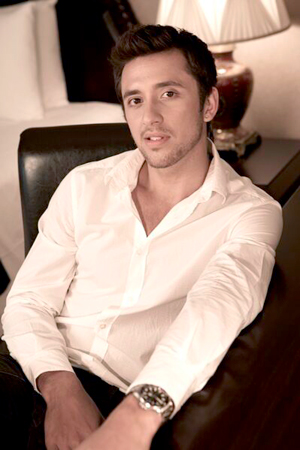
BORN on 1 June 1982, Mohd Azlan Iskandar started playing squash when he was eight. He turned professional in 2001 and has won 11 professional titles since then.
The Asian champion is currently ranked 18th in the world. His highest ranking was 11th, in September 2008. The national number one is also setting up his own squash academy soon.
Azlan shared his experience growing up as a Malaysian and a Malaysian athlete with The Nut Graph in an exclusive interview on 15 June 2010 in Petaling Jaya.
TNG: Where are you from?
Mohd Azlan: I was born in Kuching, Sarawak.
Can you trace your ancestry?
My dad was born in Scotland, my grandmother is Scottish and Celtic, and my granddad is Norwegian and also a Viking.
On my mum’s side, my grandfather is half-Indian and half-Malay, and my grandma is Hokkien. So I have a very mixed lineage.
How was growing up like?
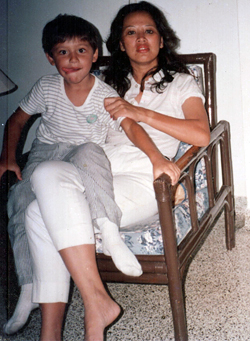
To be honest, it was a sheltered life in the beginning, I was in a private school till about Form One, and then I moved to Kuala Lumpur for squash. My two sisters were already studying in Kolej Tuanku Ja’afar in Negeri Sembilan then. I think I was supposed to go to Royal Military College but I opted for squash instead.
I was one of the 15 squash players selected, and the youngest player as well, to join the Jaya 98 Programme (also known as the Commonwealth Games 1998 Athletes Preparation Programme) sponsored by the National Sports Council (NSC).
It was tough because I moved here when I was 13, on my own. During the first two years, I stayed in an apartment with three other players in Subang Jaya. We had to cook for ourselves and do our own laundry. It was a culture shock for me, and on top of that, my parents were separated at the same time, so I didn’t feel comfortable going back to Kuching. But I would still feel really excited and happy when my mum came to visit me.
I studied in Sekolah Menengah Subang Jaya for two years, and then moved to Bukit Jalil Sports School. Looking back, I think I didn’t really have any school friends. I don’t remember hanging out with them much after school hours because I had to head straight to the training centre. I was so committed to the sport that for me, going to school was just something I had to do, it wasn’t to make friends or socialise. I already knew I wanted to be a professional squash player back then, so I guess my mind set changed.
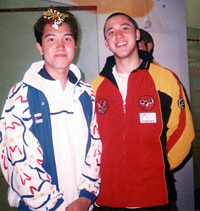
I was able to train twice a day after I moved to Bukit Jalil, but I’m not sure how many top athletes are there anymore. I think there has been a slight drop in the standard of athletes studying there.
I moved to England to train when I was 17. (Ong) Beng Hee and I, our budget was limited, so all the money went into squash. I still train there for six months a year now, but when I was 17 till about 24, I spent around 10 months training there.
When did you become aware of race?
Growing up in a private school in Kuching, (if) kid A and kid B were not the same, it didn’t make a difference. I only sensed the difference when I moved to Kuala Lumpur and was put into a government school. There were different cliques in school, and different races would hang out on their own. I was kind of singled out, but I didn’t really care because I was blinded by the love affair with the game.
Did you struggle with your identity as a Malaysian when growing up?
Not at all, I play squash for the country; everything I do is to make Malaysia proud. Sometimes people take you for granted because you’ve been playing for so long, but I guess people also expect me to do well for the same reason. It’s not as easy as people think to stay on top all the time in squash.
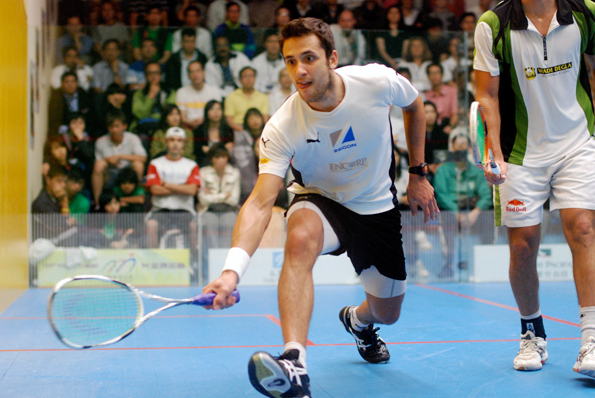
Is there any aspect of your identity that you struggle with?
No, except for the fact that I don’t look Malaysian. It’s quite frustrating sometimes, when I’m being served by locals, they speak Malay behind my back. They think I’m a white person and that I don’t know Malay, but I can speak the language fluently.
Describe the kind of Malaysia you would want to see in future.
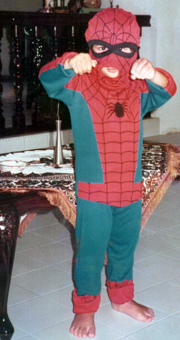
Many Malaysians still treat sports as just a hobby. I think more could definitely be done to help people realise that you can make a career out of it. It’s been my career for the past 15 years.
I hope the country can produce more world champions in future, with better athlete identification programmes, facilities, and the right funds being channelled into producing quality athletes, and for our athletes to be managed properly.
Right now a lot of athletes are giving up because there are no perks and incentives to stay in the game. Our next generation of squash players are being paid RM400 a month to be full-time athletes. They are living with the bare minimum, and are only surviving because the government subsidises their food and accommodation. If anything, I would like to see a change in this area first. ![]()
The Nut Graph needs your support


beng says
It’s rather sad to see certain sport getting a lot of funding, while other sport like squash or cycling takes a backseat in the country’s sporting ambition.
Through these inefficiencies, there must have been hundreds if not thousands of ‘sports persons’ who could have excelled for the country for the past 20 years.
I guess sometimes it maybe also the parents’ mindset for not seeing the potential in their child taking up sport vs. education. There is the constant worry about the child losing out academically, so sports is naturally sidelined.
Margaret says
‘Many Malaysians still treat sports as just a hobby.’ I don’t think it’s that as much as the powers-to-be treating athletes as third class citizens and that they should sacrifice everything for their country. How else can you explain being paid RM400 per month to be full time? Of course, I don’t think that athletes should be paid millions of dollars either but they should be treated like professionals and be compensated as such.
khairil says
I notice your questions seemed to provoke your subject into talking about their ‘racism experience’. I think Azlan was just too smart for that, given his answers indicated that he was not bothered at all. Bravo, Azlan.
Ellese A says
Bravo Azlan. You’re focus and driven. We want more people who concentrate on common goals and objectives. Not those who hang on to differences like the question on race. You certainly get my vote.
Alan says
Azlan hasn’t been escaping. He is trying to play down the issue so that no one is insulted. He is still very Malaysian and with this identity he can’t avoid facing any racial tensions aroused by some particular leaders here. We need more talks and less argument. All we wanted is to make Malaysia better.
Chnadra says
‘Many Malaysians still treat sports as just a hobby.’ There is nothing wrong with this, but good luck to those who treat it as a career.
benny says
he is hot. :p
JayCKat says
‘Many Malaysians still treat sports as just a hobby.’
Many Malaysians who dream of being athletes get a harsh lesson from life, usually by way of experience at the tryout field. And if that doesn’t work, one’s parents will sit you down and explain the “facts” of Malaysian life. Yet I have to admit, those “facts” would not stop a real athlete with real dedication to the game. Support or not, they will compete. Not many of us have the guts to say “Damn it all!” and take on international competitions with what training we can muster on our own. Everything for the game.
I guess you are right. Malaysians don’t see sports as a way to make a living. Faced with the choice of sports or education, parental pressure will always see education win. Most of us are just cowards for letting such dreams die. Few if any of us are able to bet our future on our skill at the game. We all tend to end up taking the safe route.
mishmash says
Came across this article and found his name familiar. Recalled him as my senior at that private school as he was one of our house’s main athletes for the school’s sports day. Have to agree with him about noticing ‘differences’ and having cliques. When I was in the private school, we never differentiated people by their skin colour or religion. It was when I too moved to a government school that I became aware of there being ‘chinese’, ‘indian’, ‘malay’ etc groups. It was a culture shock of sorts.
I’m glad to have had the chance of growing up ‘colour blind’ and being just Malaysian rather than being another chinese malaysian.